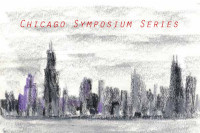University of Illinois at Chicago
At times the world of education seems as chaotic, absurd, and on the brink of self destruction as the world depicted in the classic 1964 movie Dr. Strangelove. We have concerns about policies as well as the sanity of the persons behind them. Such is the case today as educational leaders face the full onslaught of NCLB (No Child Left Behind). But there is hope, for out of chaos can come order and beauty. This presentation will explore how NCLB creates the context for a much more rational and useful discussion of the role of assessment in the educational system, and most especially, the ways in which assessment needs to be designed to support fundamental teaching and learning processes. We will explore what contemporary research and theory about how students learn have to say about the design and use of assessment in the educational enterprise, and how NCLB creates the context for important changes in the status quo of educational testing and assessment.
James Pellegrino is distinguished professor of cognitive psychology and education at the University of Illinois at Chicago (UIC) where he also serves as co-director of the Center for the Study of Learning, Instruction and Teacher Development. Prior to assuming his current positions at UIC, he was Frank W. Mayborn Professor of Cognitive Studies at Vanderbilt University and Dean of Vanderbilt's Peabody College of Education and Human Development (1992-1998). He also served as co-director of the Learning Technology Center at Peabody (1989-1992). His research and development interests focus on children's and adult's thinking and learning and the implications of cognitive research and theory for assessment and instructional practice. Much of his current work is focused on analyses of complex learning and instructional environments, including those incorporating powerful information technology tools, with the goal of better understanding the nature of student learning and the conditions that enhance deep understanding. A special concern of his research is the incorporation of effective formative assessment practices, assisted by technology, to maximize student learning and understanding. He served as chair of the National Research Council/National Academy of Sciences Study Committee for the Evaluation of the National and State Assessments of Educational Progress, co-chair of the NRC/NAS Study Committee on Learning Research and Educational Practice, co-chair of the NRC/NAS Study Committee on the Foundations of Assessment, and chair of the Panel on Learning and Instruction for the NRC/NAS Study Committee on the Strategic Educational Research Partnership. He is a member of the NRC/NAS Board on Testing and Assessment.

